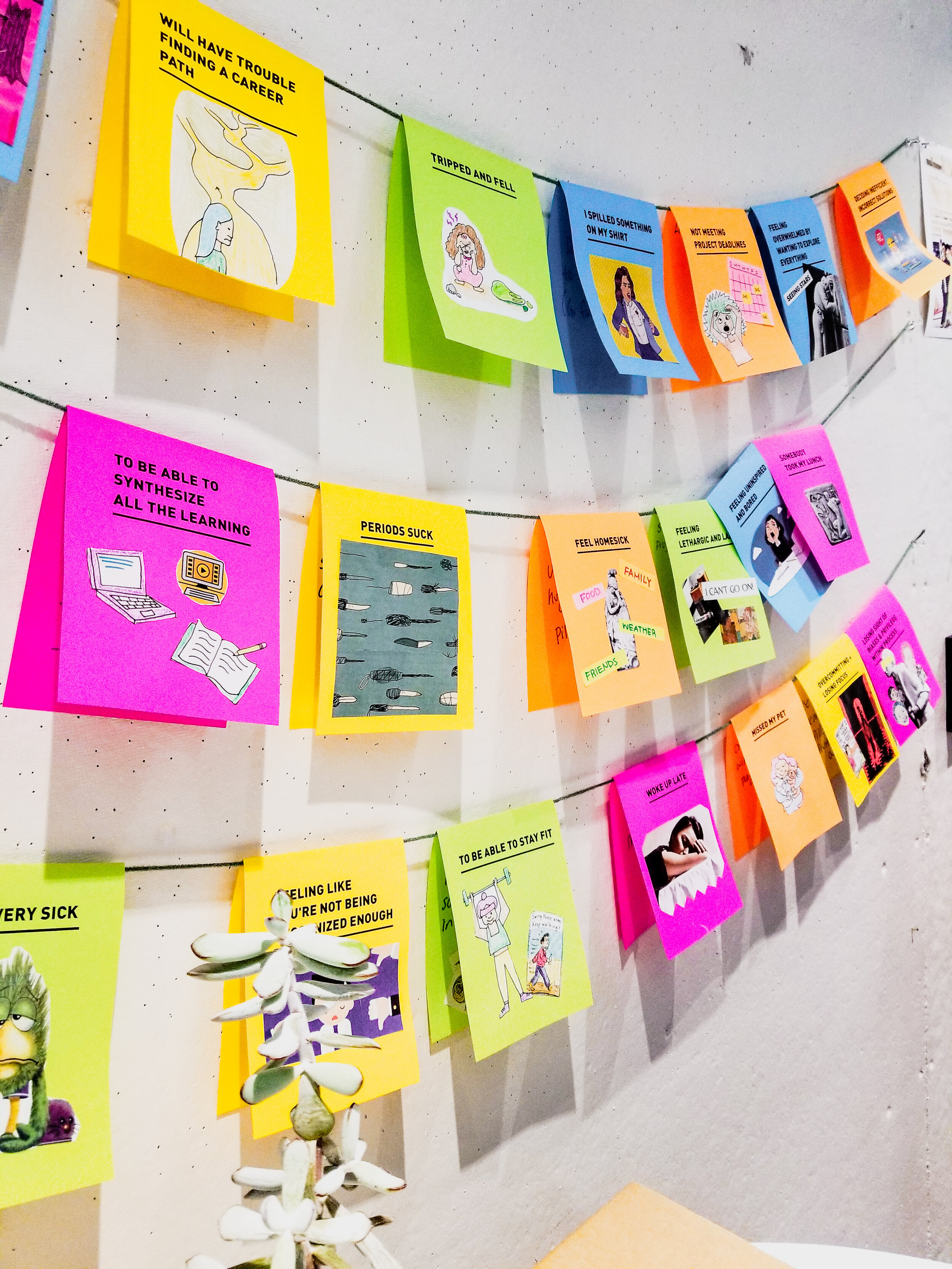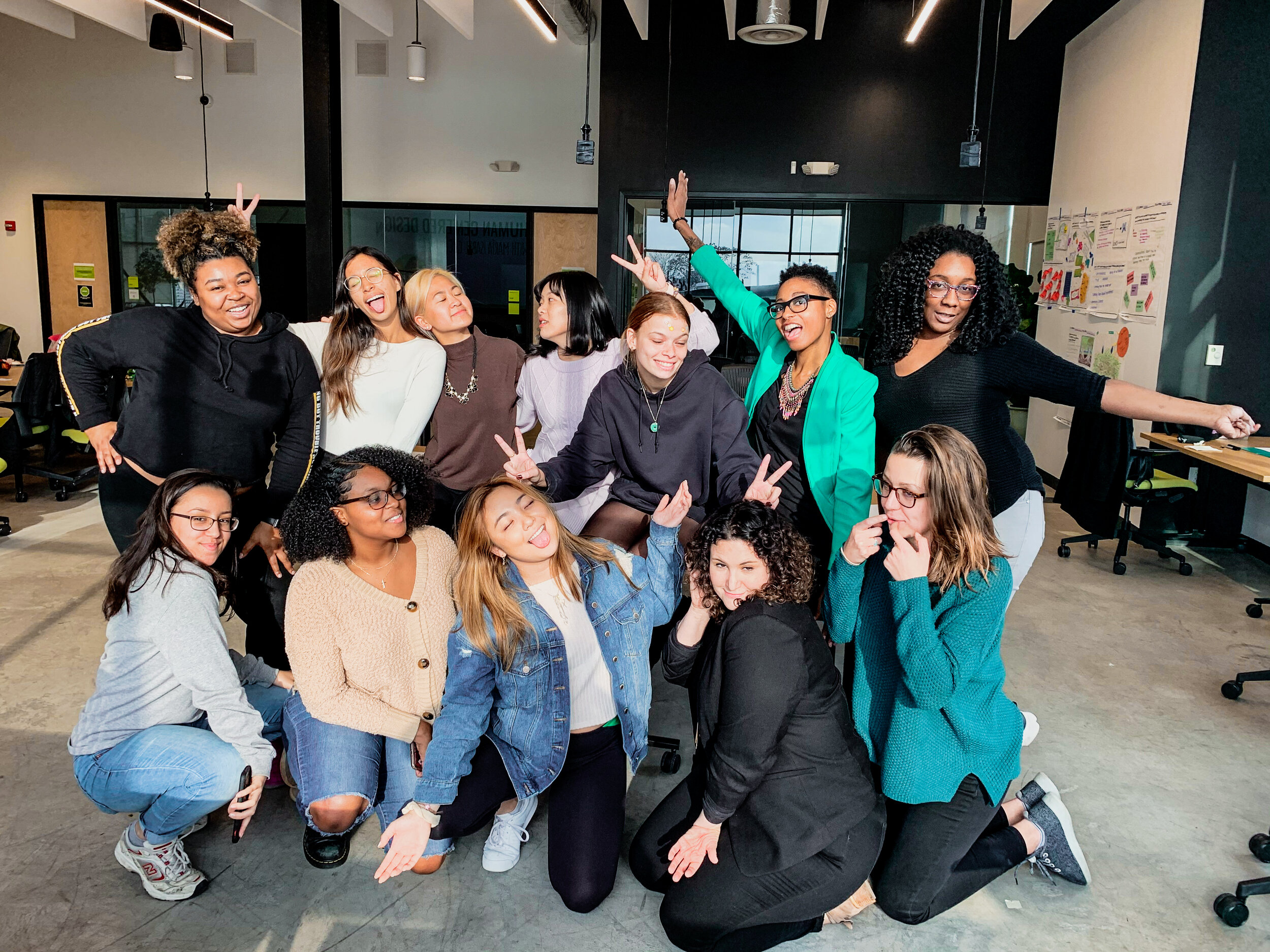care-centric guidance
WITH GROUPS, COMMUNITIES, AND MOVEMENTS
When working with groups
—cohorts of students, organizations, networks, movements—I focus my interest and energies on communities who want to build cultures and systems of care into their collaborative ways of relating and making.
Over the years, this has looked like designing and facilitating sessions to tend to specific needs or desires, advising design and research programs, guiding structures and processes, offering feedback on the conceptualization and development of projects, and teaching community courses.
Some areas of practice that my collaborations have focused on include:
unearthing what we care about and what will guide communities of practice
prototyping ways to take care as a cohort
trusting collective care dreams and growing the conditions to make them possible within a network
engaging with co-design as a commitment and care praxis throughout participatory research and design
exploring design as a pathway to justice and more liberatory worlds
making sexual and reproductive health programs and services more accessible to youth
moments of collaboration
and care-centric guidance
a joyful end-of-session capture with the Baltimore Collegetown cohort
Oak Street Health
Joining the programming made to nurture employees managing care clinics, working in the field, and holding other creative roles within the organization, I was invited to facilitate a session for Black History Month. Participants will create visual narratives about our creative labor and lineages through the dynamic art of collage.
This experience is a space to ground in the history of Black creativity, connect with our bodies to remember our gifts, our contributions, and our ancestors, and explore guided prompts that will inspire a playful artmaking process.
Food Rescue Alliance
Food Rescue Alliance (FRA) is a peer learning network of 31 food rescues and food access organizations across the country. Investigating ways to incorporate collective care work into their network, members were led through two interactive sessions on “Trusting Our Collective Care Dreams”—a listening and worldbending series to shine a light on the care dreams that will guide and hold our work in the world.
Participants left with a deeper understanding of care when rooted in community, insight into the kinds of interdependent, nurturing acts of solidarity they want to activate as a network, and a list of practices they can explore in future workshops that will support making their collective care dreams more possible.
Baltimore Collegetown
During the Baltimore Collegetown Fellowship Retreat, students across campuses came together to learn about ways to co-create social change and receive support while engaging with their local communities. Together, we explored the principles and elements of emergent strategy through poetry, storytelling, imagination, and prototyping.
Students worked in groups to practice relational ways of building the worlds they want to see, clarify their inner and outer resources, and develop project goals rooted in nature and collective transformation.
Photos from experiences during the Fellowship Retreat are shown below.
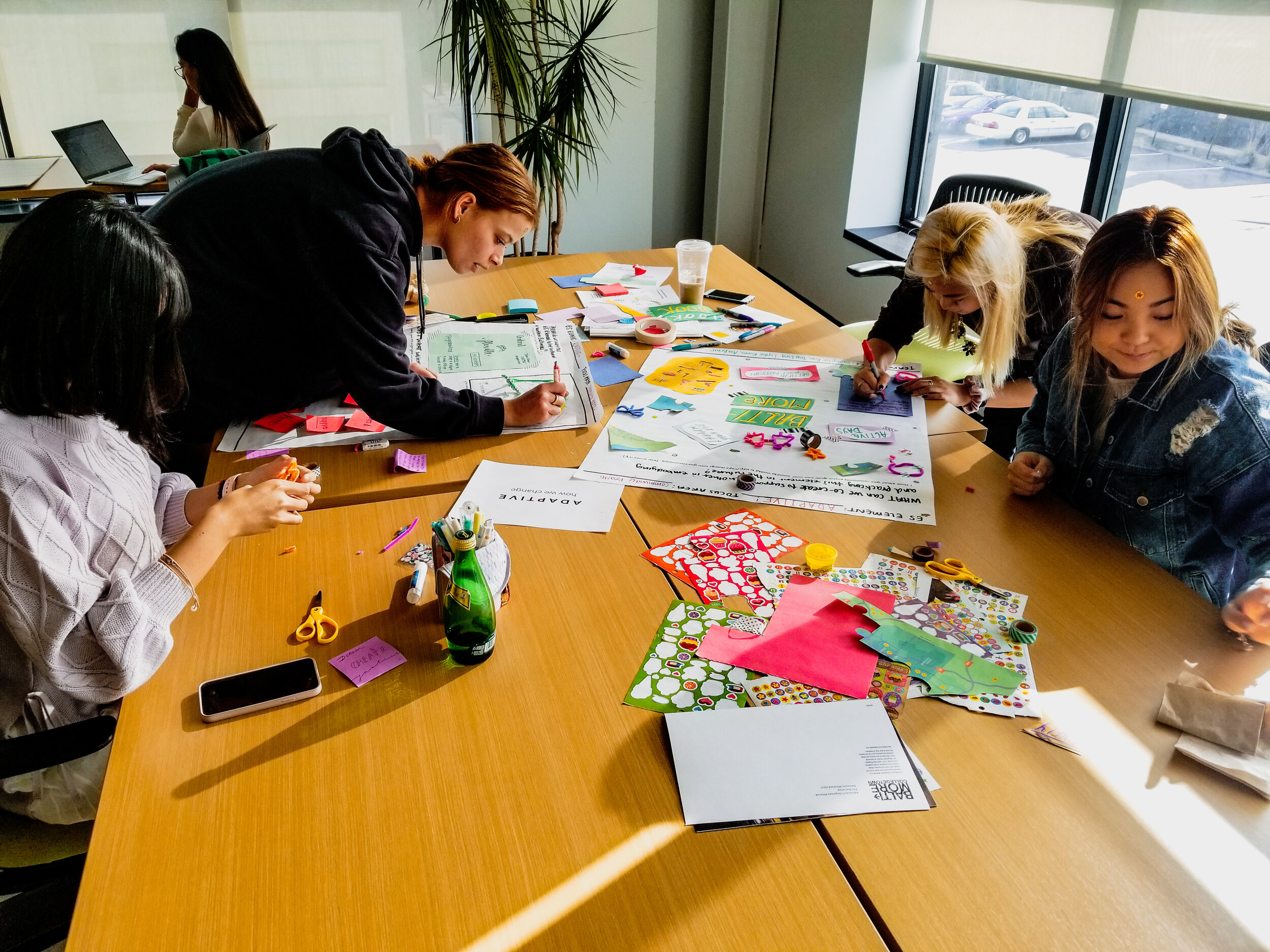
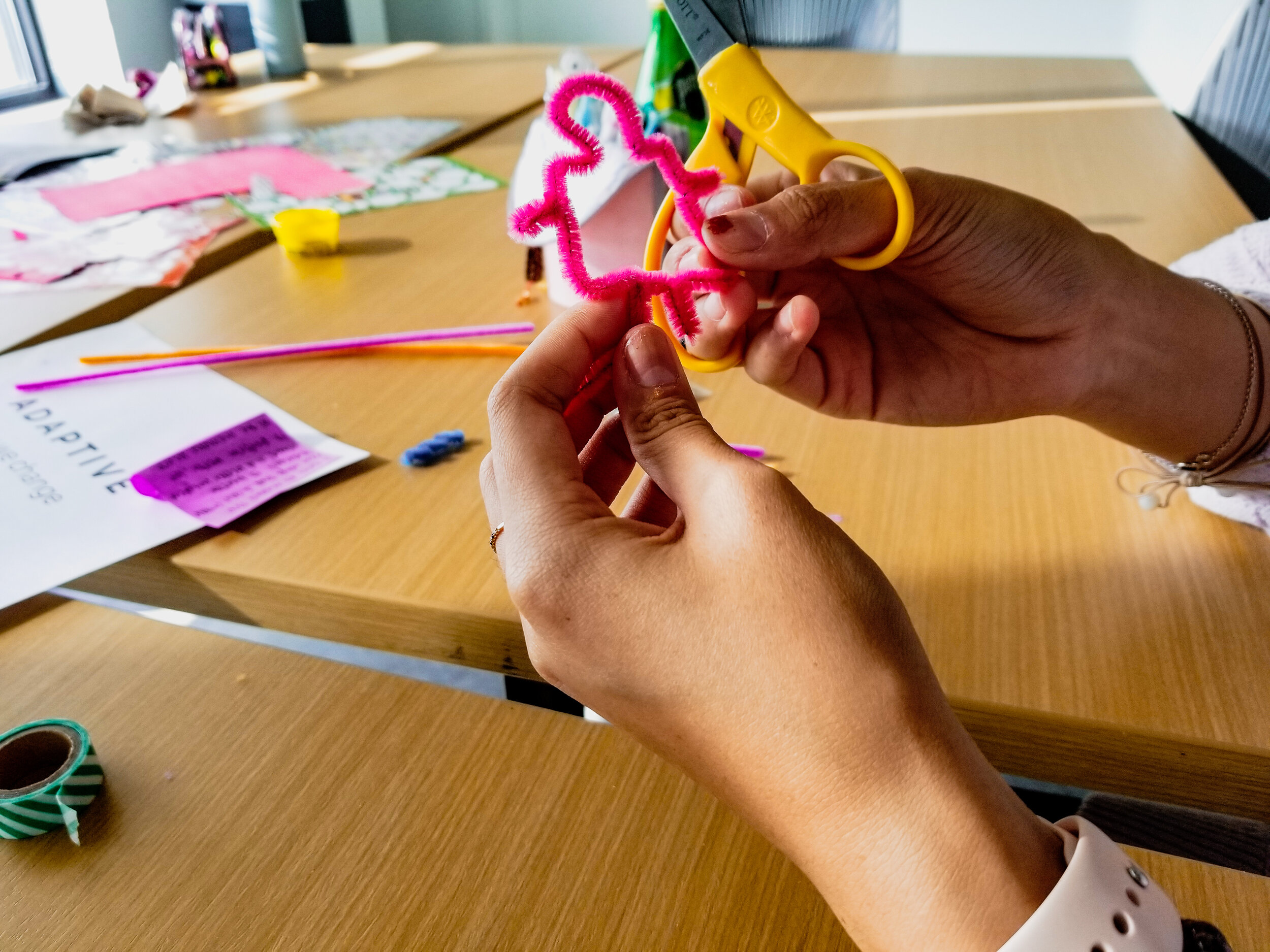
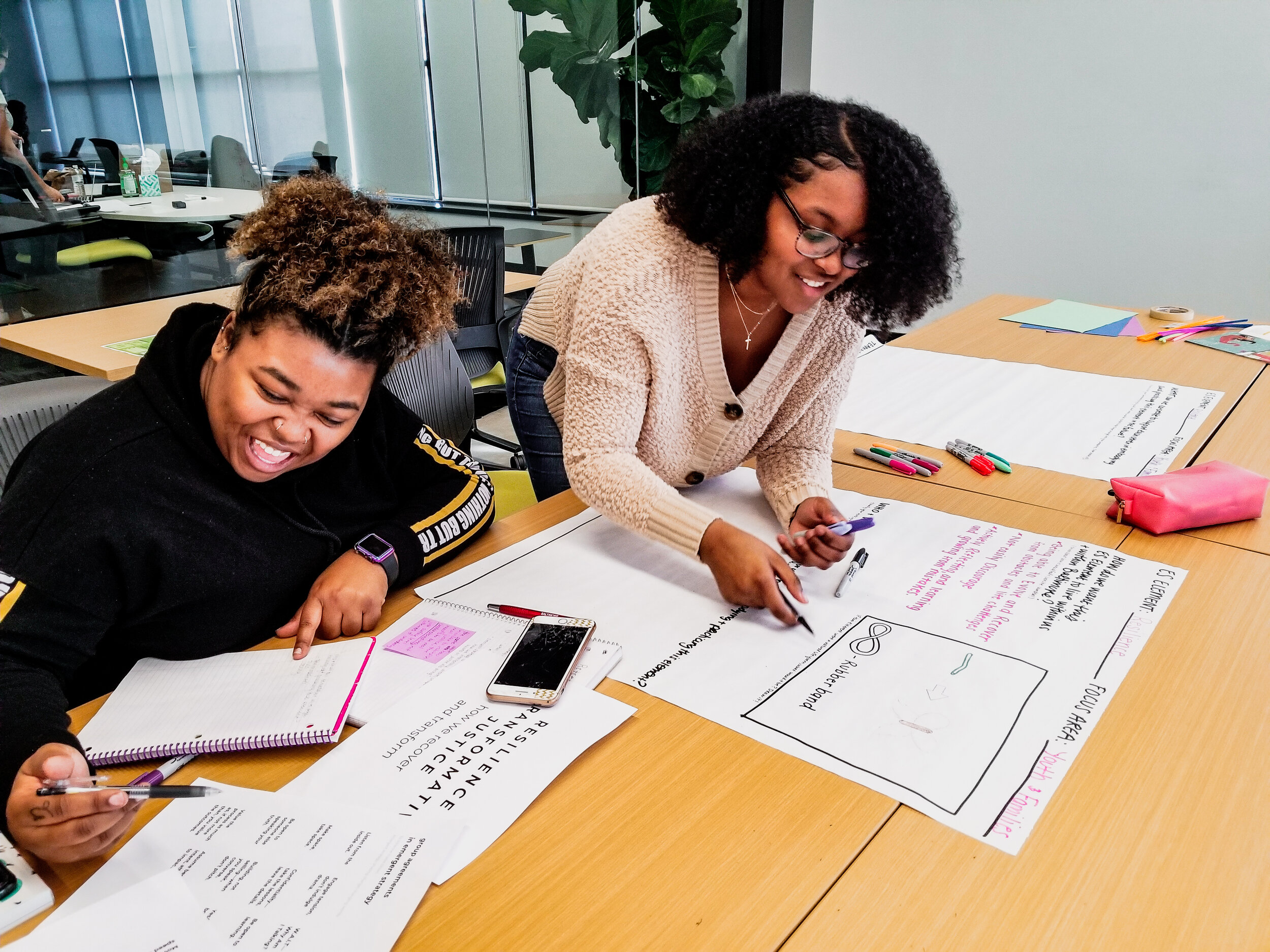
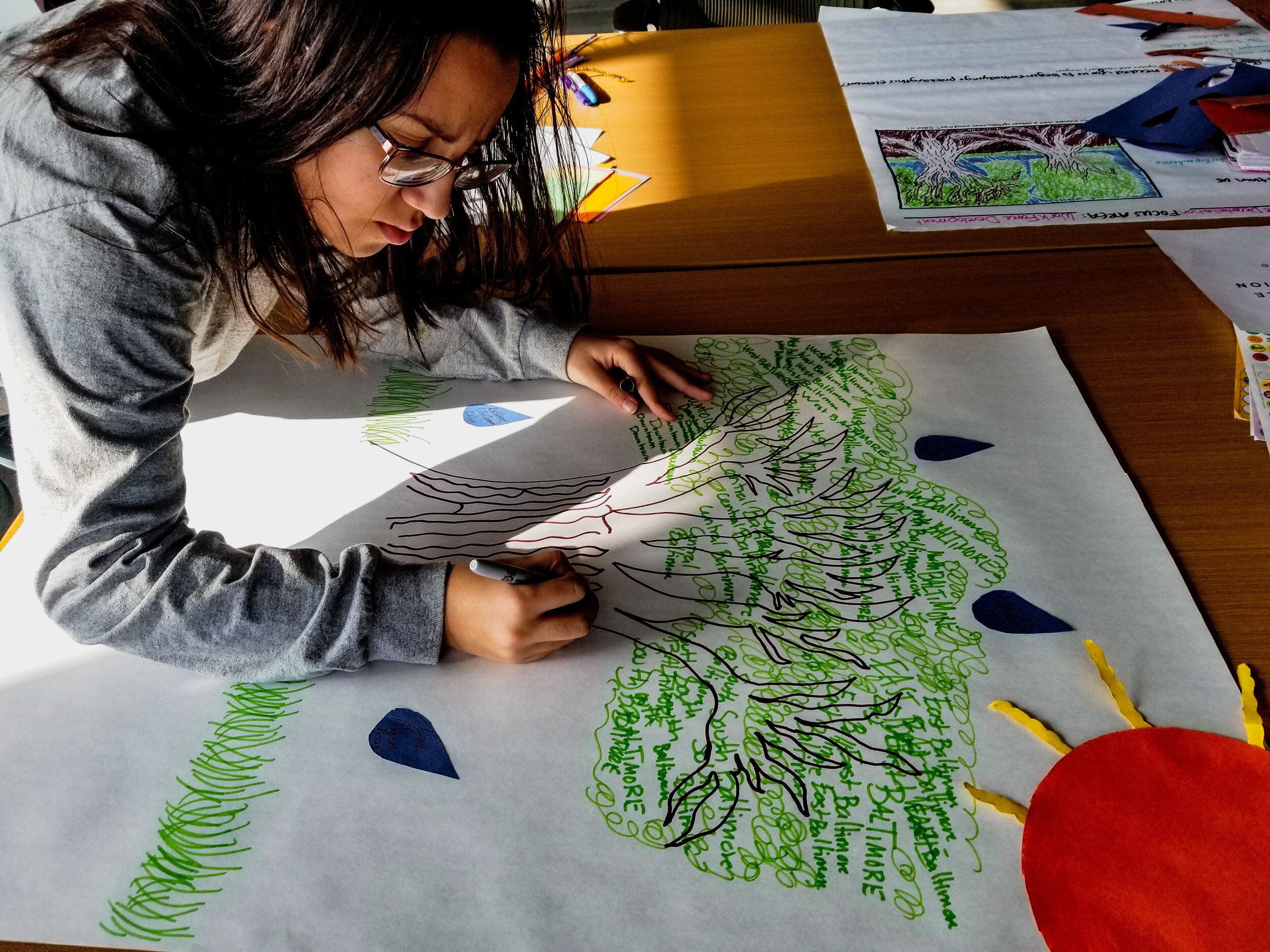
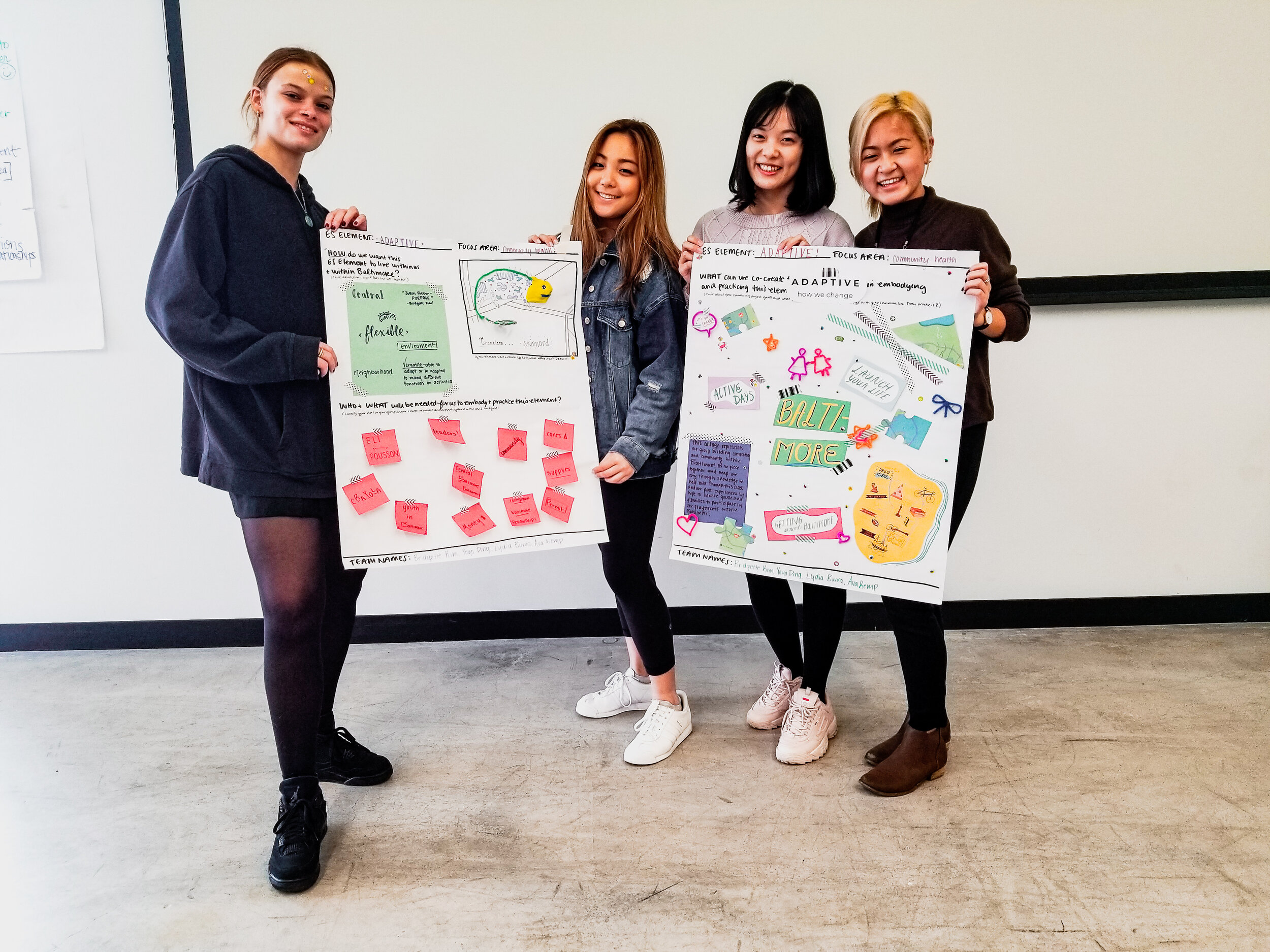
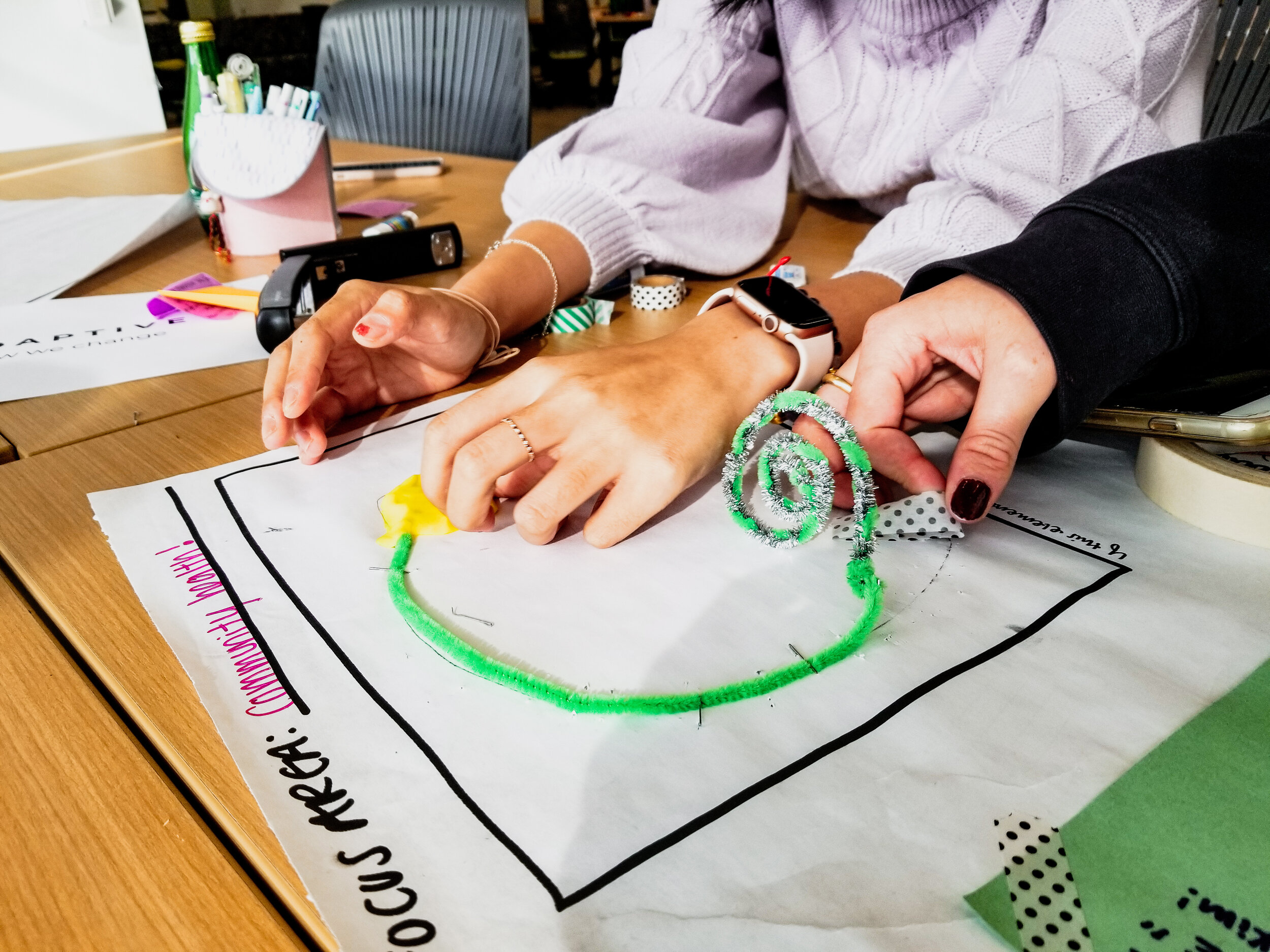
Thrivology
At the start of 2024, I took the role of Design Advisor with Thrivology, a creation of Healthy Teen Network and Johns Hopkins Center for Adolescent Health. Thrivology is described as “a collaborative project with the goal of equipping youth-supporting professionals with the information, skills, and products needed to implement healing-centered Adolescent Sexual and Reproductive Health (ASRH) programs and care.”
As Design Advisor, I’ve supported the creation of accessible resources by reviewing documents and designs, providing feedback, guidance, and critique on elements of the team’s design process, and sharing my approach to measuring how to know when we're successfully fulfilling our vision and commitments.
In/Tend
Also a part of Healthy Teen Network, In/Tend is described as “an Incubator Hub cultivating teams who’ll use participatory research and design to sow and scatter the seeds of innovative solutions to real-world challenges.”
Being one of their Subject Matter Experts,
I support the In/Tend mission to enhance the sexual and reproductive health of all young people by supporting the selection of teams through application reviews and judging, providing feedback and guidance on the team’s conceptualization and development of prototypes, developing and facilitate trainings, mentoring and coaching, and providing feedback on the Hub's structure and processes.
MA Social Design
After graduating from MICA’s MA Social Design (MASD) in 2017, I stayed connected to their Center for Social Design. I understood how it felt to move through the program as a student while desiring a more liberatory framework of design and more care within the curriculum. Seeing care-centric guidance as necessary, I proposed, designed, and facilitated experiences for three cohorts.
Graduate students were guided on ways to unearth what they care about and what will guide communities of practice, prototype tools and resources for taking care as a cohort, and explore Design as a Pathway to Justice—a virtual module asking and experimenting with the inquiries: How can design be a tool for dreaming and building more just, liberating futures? How can we both practice and embody the justice we want to see?
Photos from experiences with MASD students are shown below.
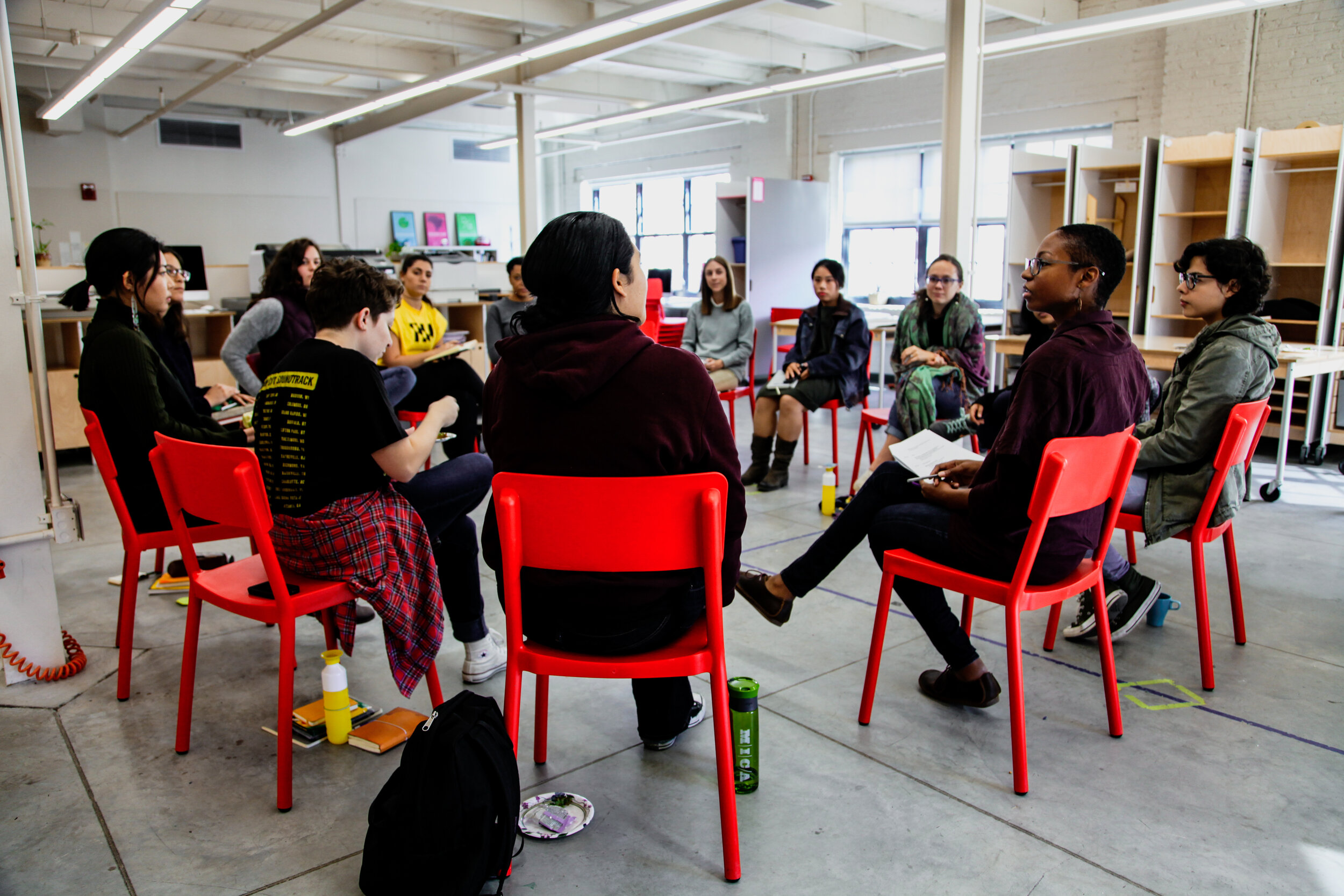
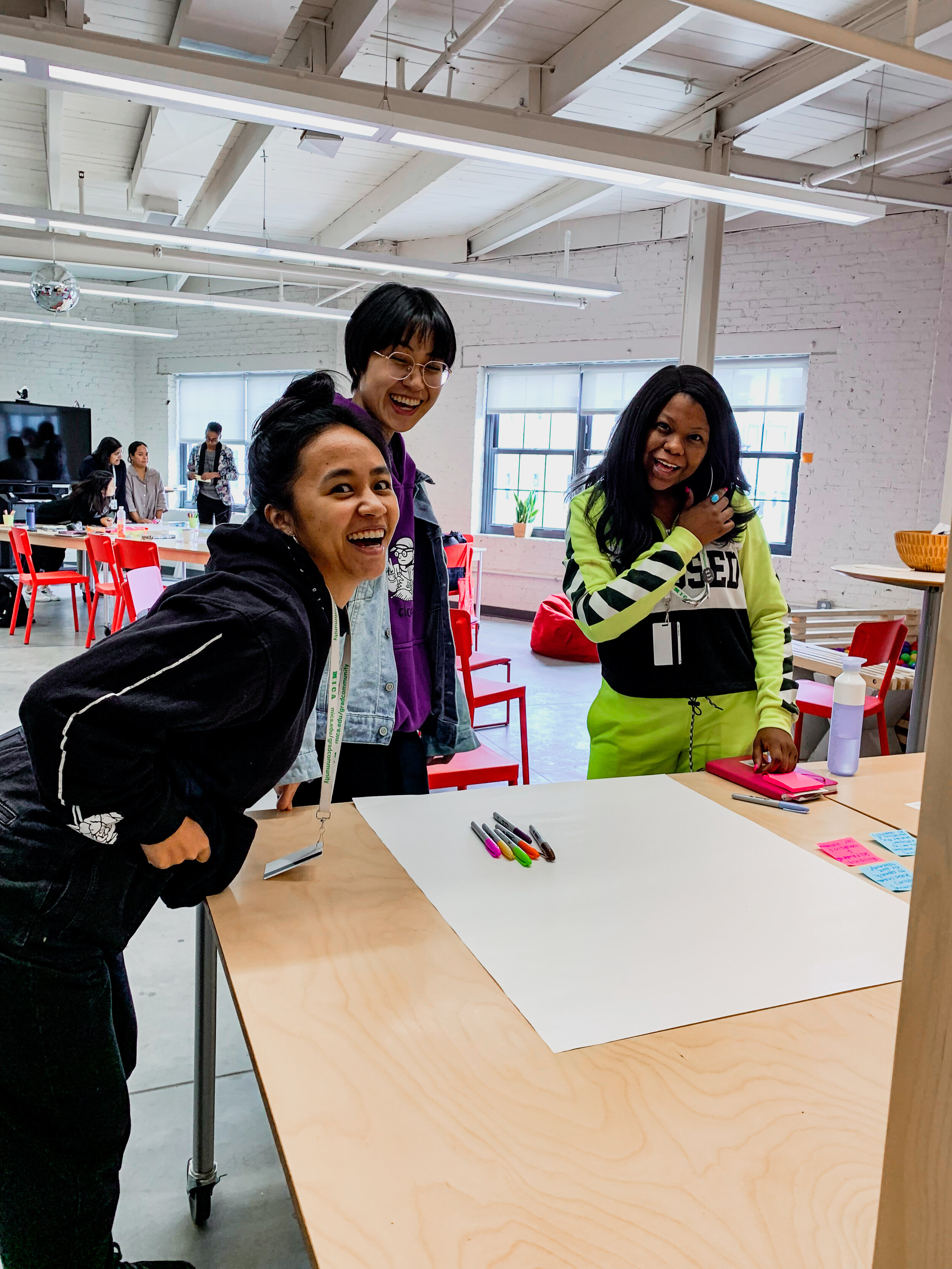
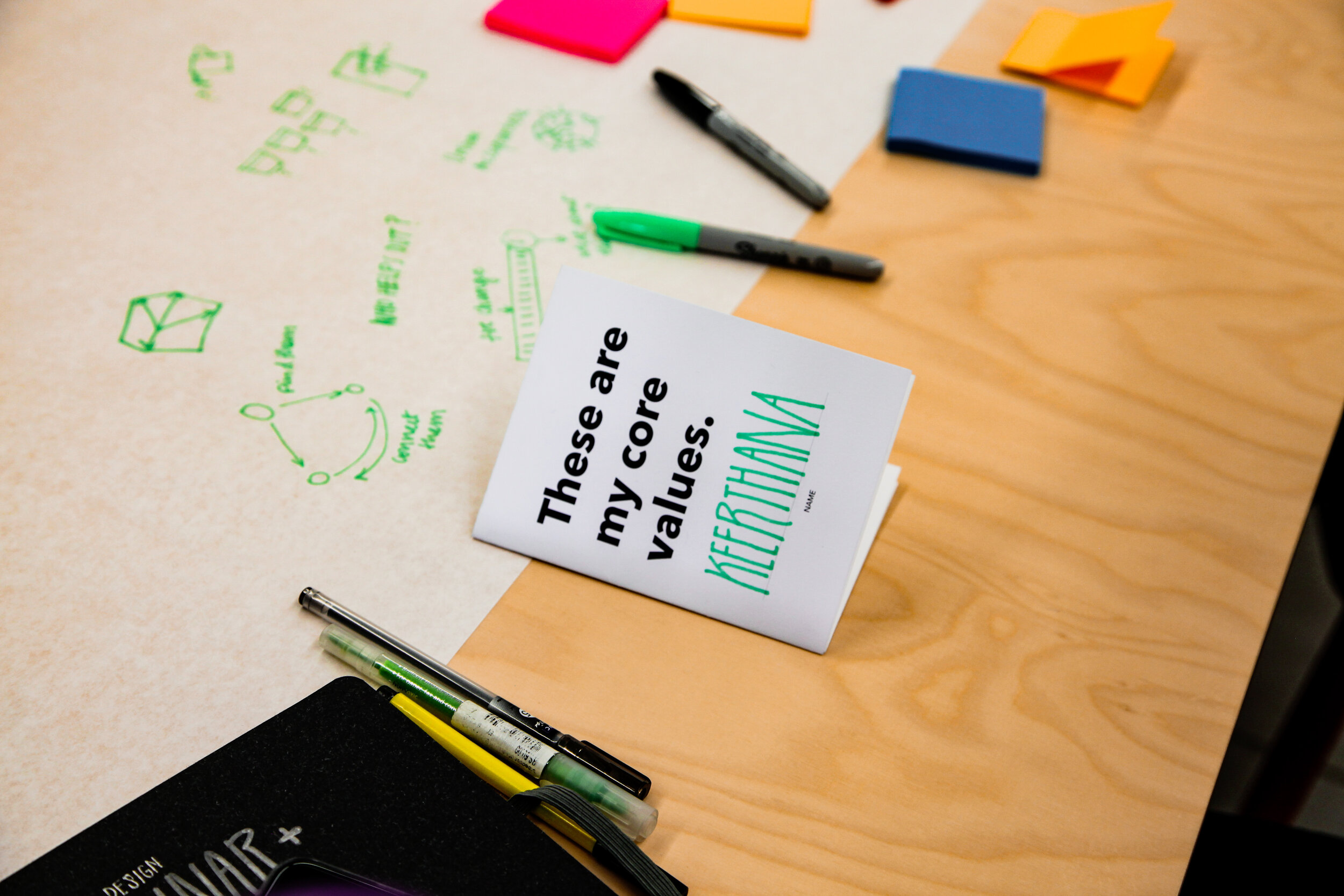
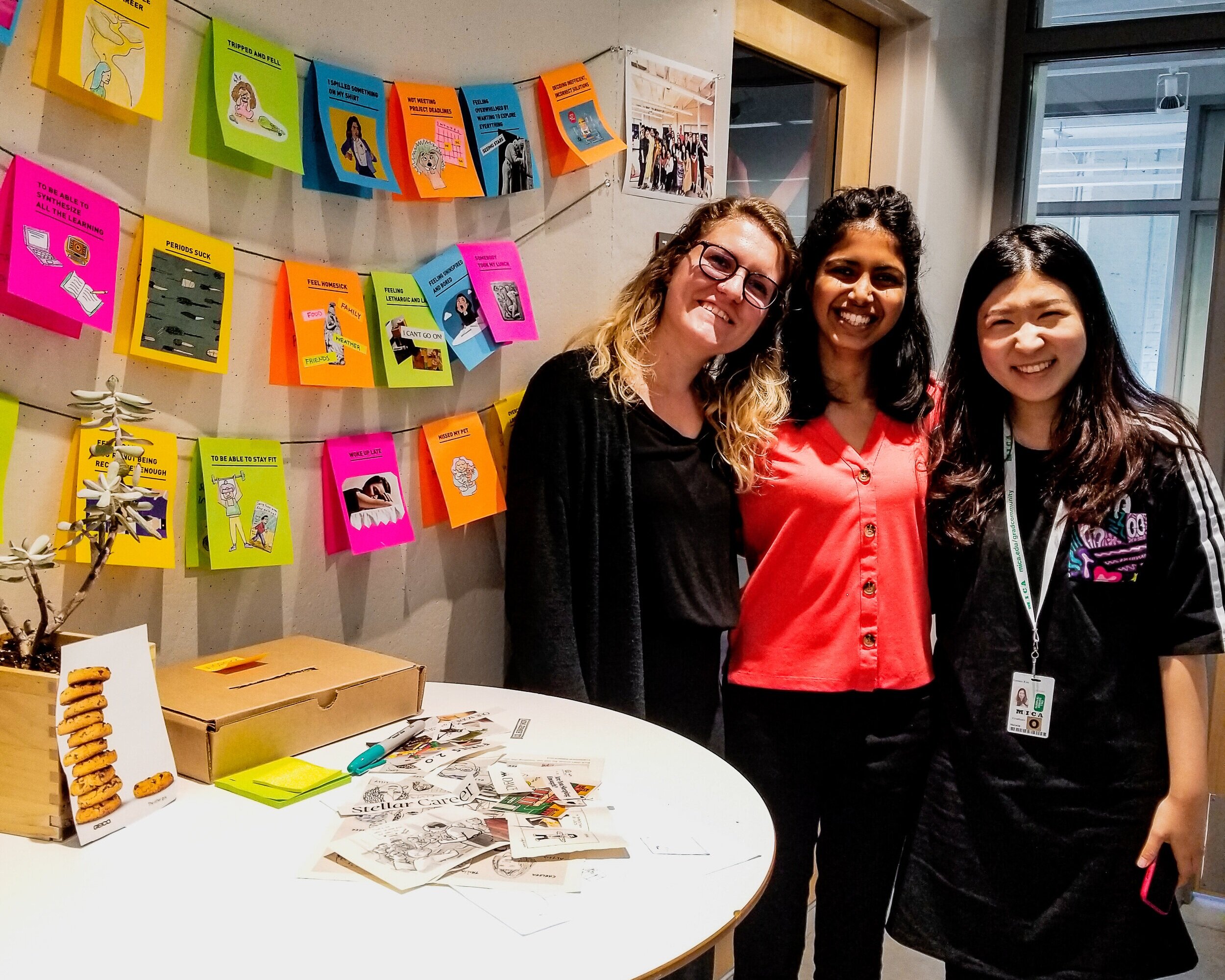
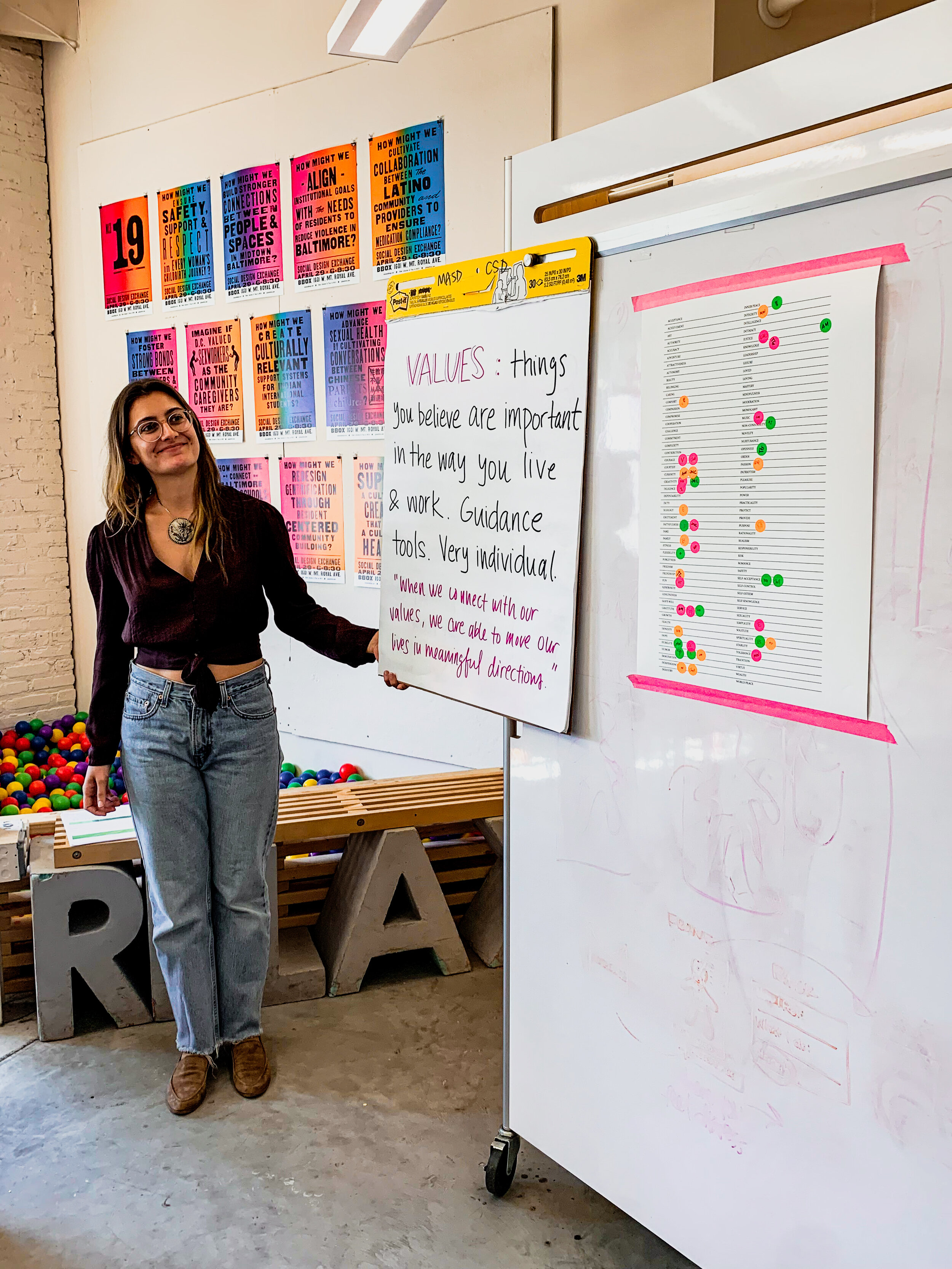
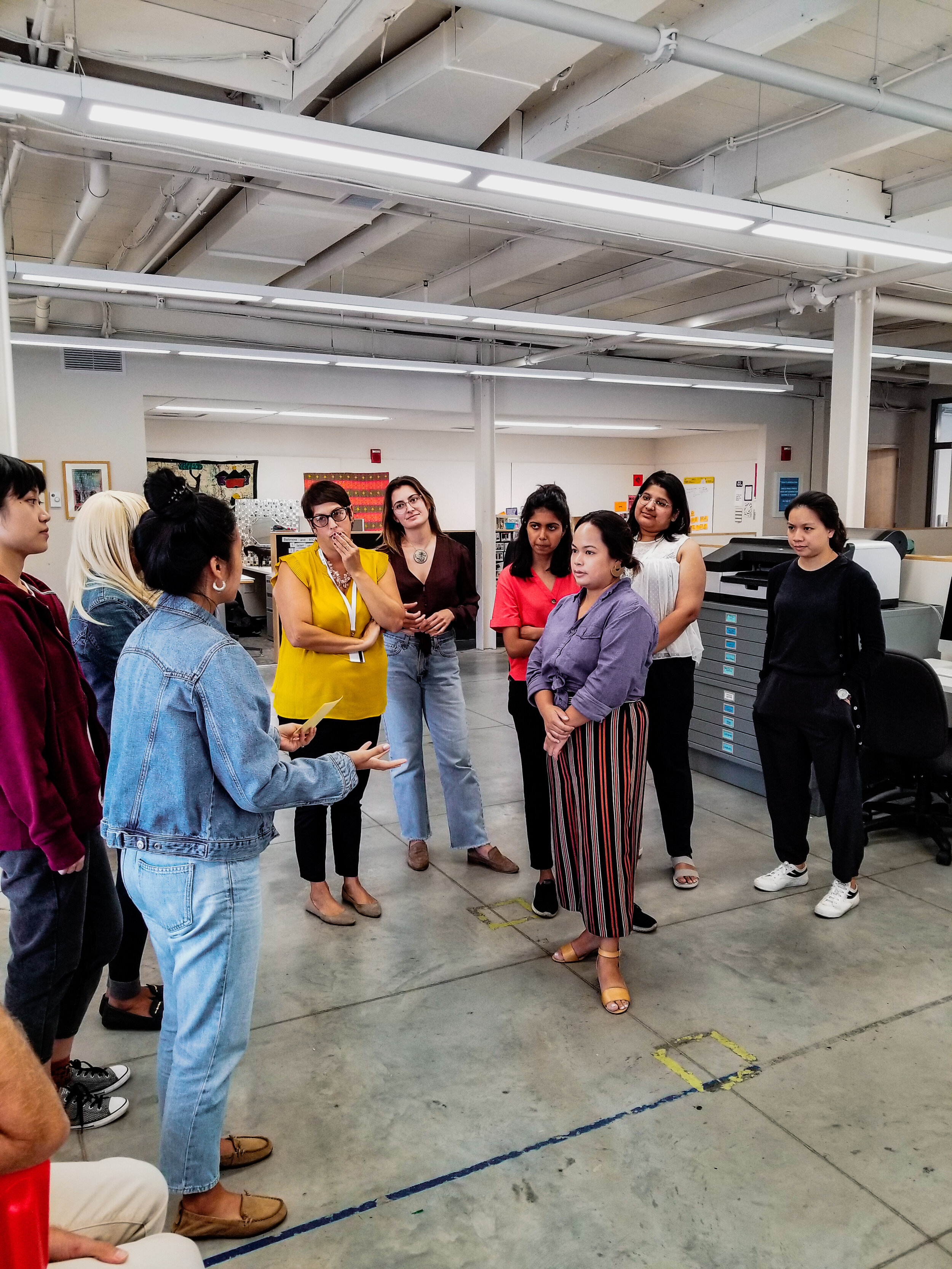
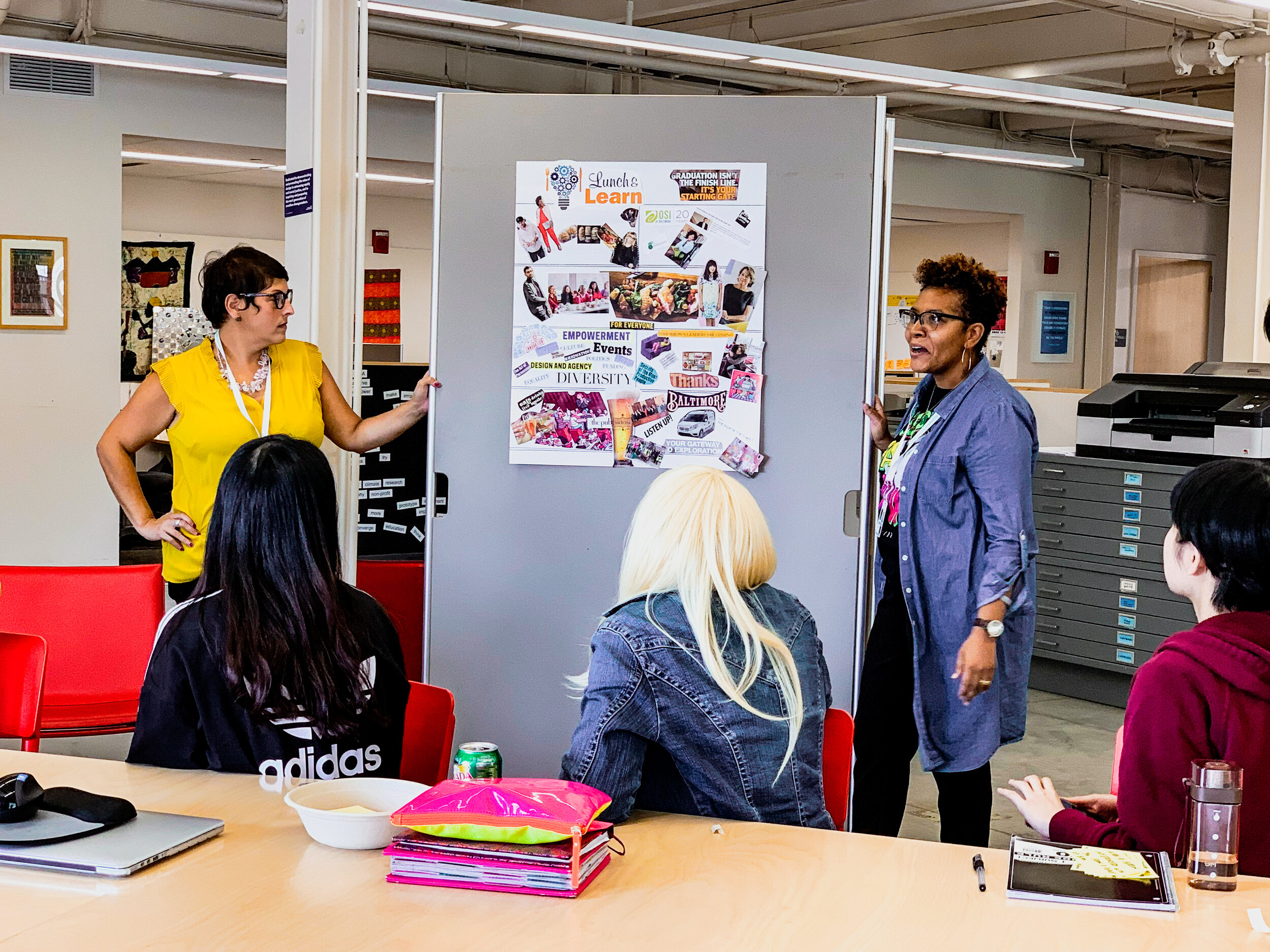
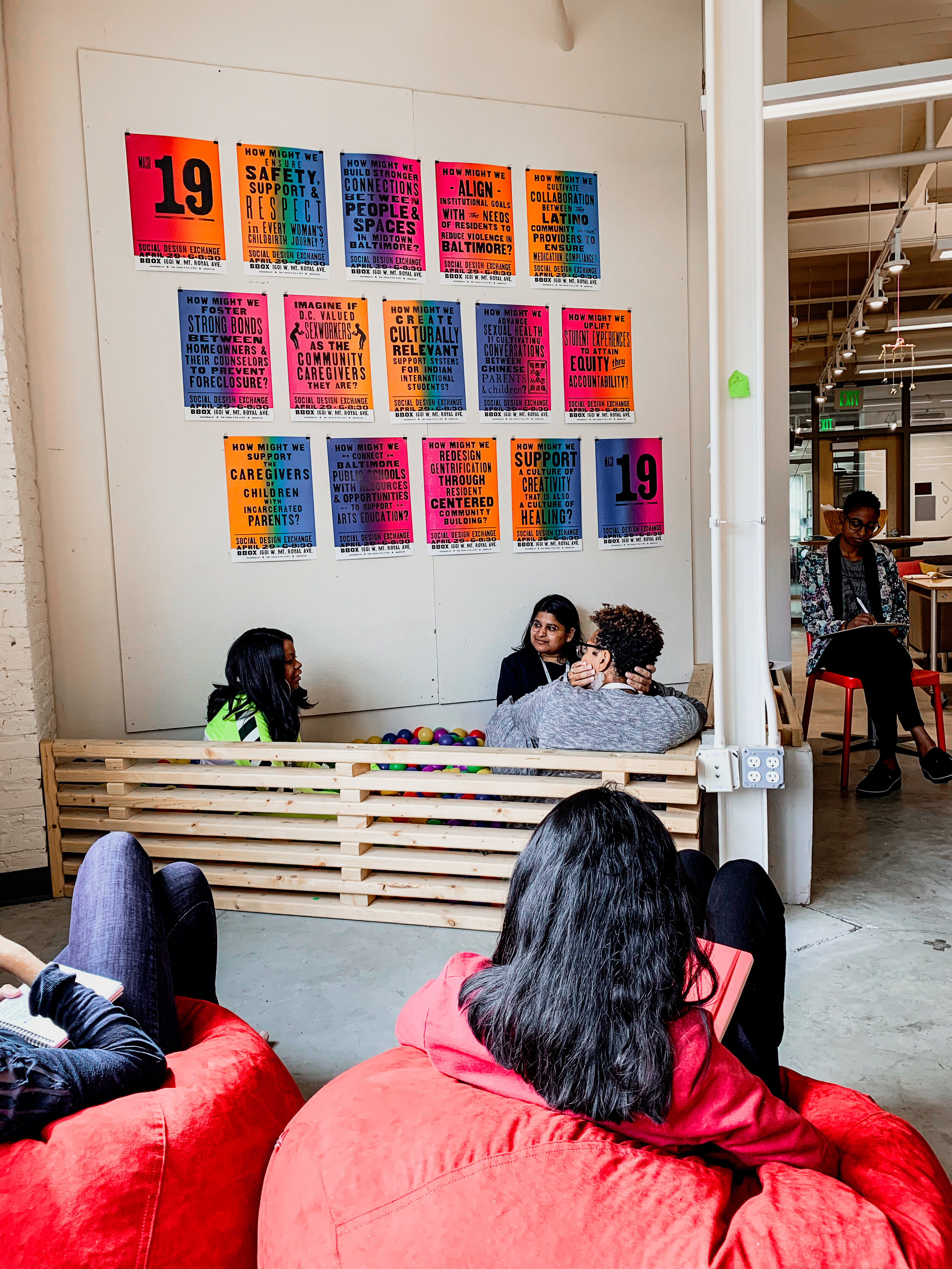
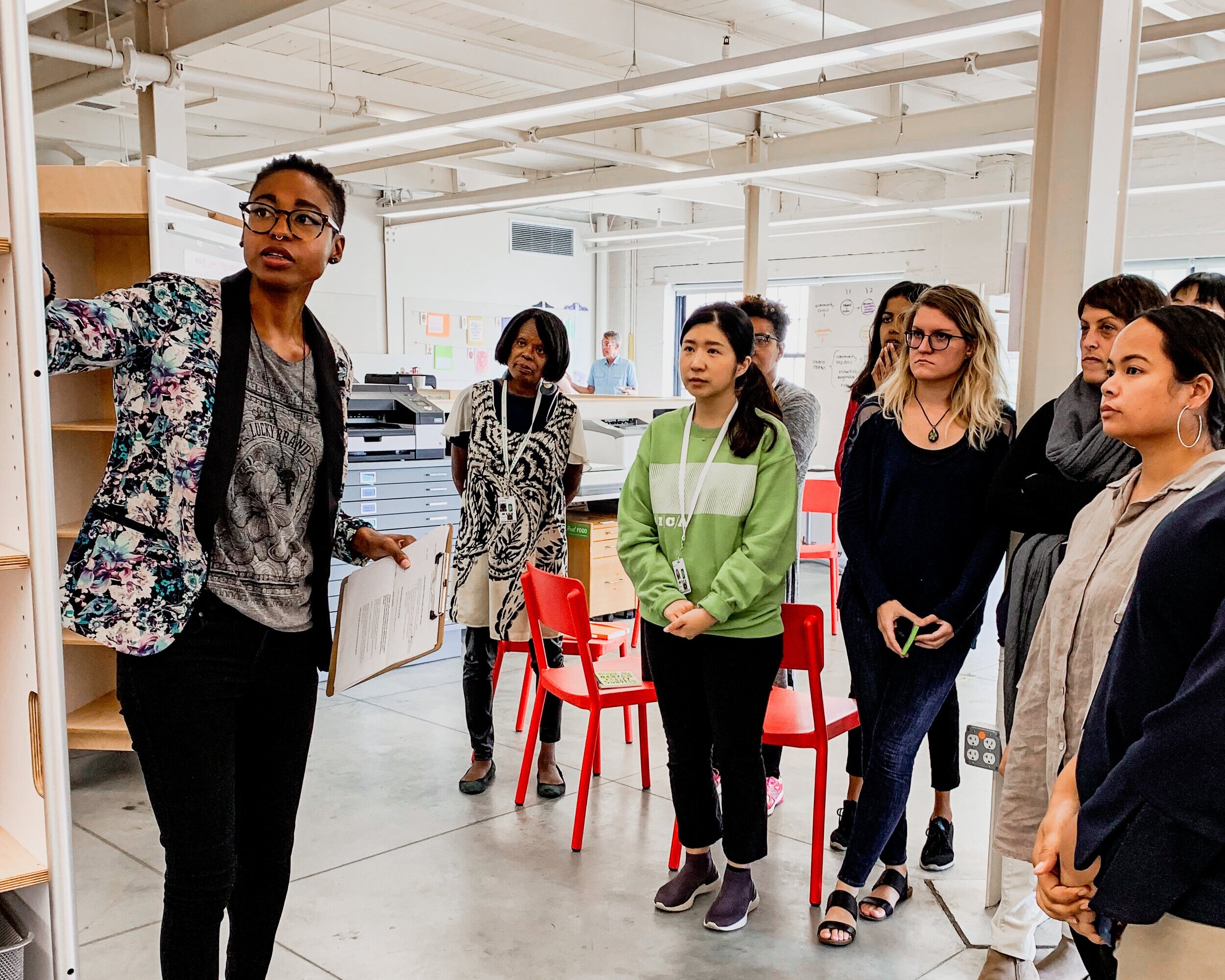

guiding across time and space
for digital wellbeing
One of my most memorable virtual experiences was the session I facilitated on Cultivating Radical Creative Care during the two-day Fifth Annual Hue Design Summit, an immersive un-conference for Black developers and designers to foster relationships and build community.
Grounded in my living definition of Radical Creative Care, we engaged in authentic dialogue about the state of our wellbeing, activated healing practices, and explored frameworks to uncover what it means to nourish our sacred creativity so that we can design new possibilities, with care. Participants left the experience with a personal and collective understanding of ways to pleasurably refuse creative burnout and their own life-giving care practices that honor their labor and brilliance.
The manifestation of this community session is seeded from my writings on the topic of “Radical Creative Care.” Radical Creative Care is a term and practice I dreamed up when reflecting on the ways I want to deepen a more nourishing, loving extension of care toward my creativity. Further articulation birthed itself after being a guest speaker on this topic with Design Activism students and instructors at Virginia Commonwealth University.




